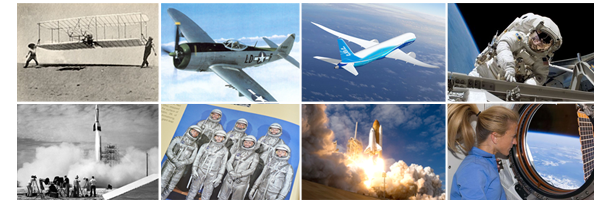The Best Self-Development Method in the 21st Century
What follows is a small number of ‘firsts’ that have all occurred in the 20th Century. Think about this for a moment. All of these transpired in only two generations of humans, many in just a single generation.
- The automobile.
- The airplane.
- Television / motion picture.
- Mobile phones.
- The personal computer.
- The right for women to vote.
- Space flight.
- Einstein’s theories of special and general relativity.
- DNA testing.
- Mapping of the human genome.
- Dating of the Earth’s age.
- Dating of the Universe’s age.

Everyday life probably doesn’t feel all that monumental, but just imagine how badly someone living in the 25th Century would crave to understand what it was like to be in your shoes. How must it feel to be among the special generation of humans who were first to experience computers, first to unveil the structure of life (DNA), first to pinpoint the age of the planet (4.5 billion years) and first to contemplate its beauty from space?
It is, really, a very exciting time to be alive.
In business, new technologies and insights have already shaped our lives dramatically in just the past few years, even though it may not feel all that historic.
We have seen a major decline in command-and-control style management, paralleled by the rise of a more collaborative, trust-centred attitude. Coaching itself isn’t new, but its adoption as a management practice is, and only began to take off in the 90s.
Similarly, psychometric tools for personal discovery and self-improvement have made a rapid growth spurt. IQ tests were only introduced in the early 1900s, personality inventories began to take shape around the 50s, and EQ assessments only joined the party in the late 90s.
There are now a variety of things about a person that you have the ability to measure: types of intelligence, reasoning skills, work style, personality, motivation, behaviour, social awareness, and values among them. 360s are also becoming increasingly popular, which allows information to be assembled about an individual from the multiple perspectives around them.
What makes all this so exciting?
Because the development of computer algorithms, better online software, and decades of research can now be brought to life to produce very accurate and detailed feedback about anyone.
In business or life, the use of top-of-the-line psychometric tests, used in conjunction with professional coaching, is the most effective means of feedback and self-development available in the 21st Century.
If you are involved in coaching, either as a manager or as a consultant, and haven’t considered using psychometric assessments before, here is a list of reasons to consider adding them to your repertoire.
As a coach, why use assessments?
Because assessments…
- Are far easier to use and interpret than they have been in the past.
- Give objective feedback.
- Are researched and validated. (The good ones, anyway.)
- Provide detailed information on strengths, talents, limitations and weaknesses.
- Have comparisons that you can link to other people with similar characteristics (such as Means and Standard Deviations).
- Help to better prepare the coach before the session, and ask better quality questions in their conversations.
- Save the coach time and guesswork, thus accelerating the conversation.
- Highlight the state of the client’s mental and emotional maturity.
- Help the coach understand how to best adapt their behaviour to suit the client.
- Help coaches understand what makes the client tick, how to communicate with them, how they learn, what goals they might struggle with, why they are giving you resistance etc.
- Are the first step towards self-awareness, helping the client develop an accurate perception of themselves, and reveal potential ‘blind spots’.
- Help the client make better decisions about career and life.
- Help the client develop new models and insights for how to interact with, and understand, the people around them.
- Have the ability to reveal things about the client that nobody else knows.
- Can build a new service range and provide a unique selling point for the coach.
- Can build a passive income stream for the coach / consultant.
Topics:
Coaching & Mentoring
Theo Winter
Client Services Manager, Writer & Researcher. Theo is one of the youngest professionals in the world to earn an accreditation in TTI Success Insight's suite of psychometric assessments. For more than a decade, he worked with hundreds of HR, L&D and OD professionals and consultants to improve engagement, performance and emotional intelligence of leaders and their teams. He authored the book "40 Must-Know Business Models for People Leaders."

/Learning%20Round%20Up_%205%20Signs%20that%20your%20HR%20Dept%20is%20a%20failure.png?width=374&name=Learning%20Round%20Up_%205%20Signs%20that%20your%20HR%20Dept%20is%20a%20failure.png)
/the%20most%20important%20leadership%20ability.png?width=374&name=the%20most%20important%20leadership%20ability.png)
We Would Like to Hear From You (0 Comments)